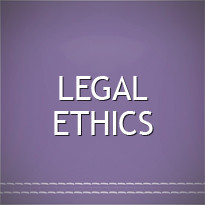A.M. No. SC-96-1 – 341 Phil. 299 – 275 SCRA 302 – Legal Ethics – Duties to the Court – Contempt of Court by a Lawyer
Atty. Damaso Flores was involved in a suit involving a debt of 1.8 million peso he loaned from one Rolando Ligon. A compromise agreement was reached whereby Flores agreed to surrender a cockpit (which he was holding under lease) to Ligon in case of breach. In 1986, Flores was accused of breaching the [compromise] agreement and so eventually a writ of execution was issued against Flores ordering the latter to surrender the cockpit to Ligon because of the said breach. Flores appealed and the Court of Appeals as well as the Supreme Court nullified the writ of execution [because it was later determined that Flores did not breach the compromise agreement].
On April 5, 1988, the Supreme Court ordered the lower court to order the restoration of the cockpit to Flores. Judge Abesamis of the trial court however only received the mittimus on April 13, 1988 and then the next 2 days, he received subsequent pleadings from Flores and Ligon. Considering this, Judge Abesamis was only able to issue an order favorable to Flores on April 20, 1988. But Ligon was able to secure a TRO from the Court of Appeal enjoining Judge Abesamis from restoring the cockpit to Flores on the ground of intervening events because apparently, Ligon was able to buy the property from Flores’ lessors. This was opposed by Flores until it reached the Supreme Court where the Supreme Court noted that such fact [of the supervening event] should be addressed by the trial court and not the SC.
From May 1989 to June 1989, Flores filed criminal and administrative cases against Judge Abesamis, accusing him of partiality, evident bad faith, and gross negligence, as well as of serious misconduct, inefficiency and ignorance of the law, in deliberately delaying action on his motions to obtain possession of the cockpit. The cases were dismissed for lack of merit.
In November 1989, Judge Abesamis issued a writ of execution ordering the restoration of the cockpit to him but this was again opposed by Ligon on the ground of the supervening event which should be discussed by the trial court. Judge Abesamis ruled in favor of Ligon. It was ruled by the trial court that Ligon’s lawful acquisition of title to the cockpit and Flores’ continuing failure to pay his debt of about P1.8 million to the former were supervening events warranting Ligon’s retention of the cockpit and precluding its restoration to Flores. This ruling was eventually affirmed by the Court of Appeals and the Supreme Court
In 1993, Flores, however, again filed complaints against Abesamis for serious misconduct etc. but they were again dismissed for lack of merit.
In 1995, Flores once more filed in the Office of the Ombudsman a complaint against Judge Abesamis, he accused Judge Abesamis of transgressing the Anti-Graft and Corrupt Practices Act “for alleged bias and prejudice in granting a party’s motion which caused undue injury to complainant.”
The case was again dismissed. The Assistant Ombudsman however ordered Flores to explain why he should not be cited for he should not be for willful disregard of the judgments and orders of the Ombudsman and those of the Court of Appeals; abuse of the processes of the courts; and forum-shopping.
ISSUE: Whether or not Flores is guilty of contempt of court.
HELD: Yes. Flores knew that Judge Abesamis cannot restore the cockpit to him because of the TRO issued by the Court of Appeals. He also knew that that the specific Orders of Judge Abesamis upon which his criminal complaint was grounded had already been sustained by higher courts, and consequently, his complaint was completely devoid of merit. Flores actually resorted to administrative prosecution (or institution of criminal actions) as a substitute for or supplement to the specific modes of appeal or review provided by law from court judgments or orders, on the theory that the Judges’ orders had caused him “undue injury.” This is impermissible.
Flores thus abused the processes of the court. He resorted to the administrative procedure for disciplining Judges prescribed by law, and even to criminal prosecution, notwithstanding that determination of the correctness of the orders of Judge Abesamis. It would appear that improper motives underlay the filing of his complaints: either to vent his wrath against someone, anyone, because of his frustrations in his attempts to regain possession of the cockpit, or to so intimidate the respondent Judges as to make them more malleable in their subsequent actuations with respect to his future motions.
Finally, his initiation of the complaint was forum shopping of the most blatant sort, a clear attempt to re-ventilate or re-litigate issues already passed upon and definitively resolved by this Court, affirming action on those same issues by the Court of Appeals and the Regional Trial Court. Flores is thus guilty of contempt; he was ordered to pay a fine by the SC.


